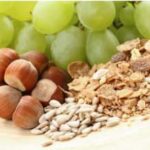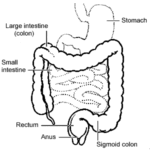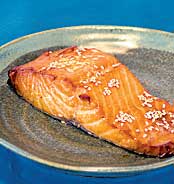 Researchers at Tel Aviv University, in Israel, focus on the positive in this small study. Continue reading Cannabis effective in patients with Crohn’s disease?
Researchers at Tel Aviv University, in Israel, focus on the positive in this small study. Continue reading Cannabis effective in patients with Crohn’s disease?
Category Archives: Inflammatory Bowel Disease
CAM use in the Manitoba IBD Cohort Study
 Researchers in Winnipeg, Manitoba surveyed the prevalence of CAM use in patients with inflammatory bowel disease. Continue reading CAM use in the Manitoba IBD Cohort Study
Researchers in Winnipeg, Manitoba surveyed the prevalence of CAM use in patients with inflammatory bowel disease. Continue reading CAM use in the Manitoba IBD Cohort Study
Treating Crohn’s disease with cannabis
 Researchers at Tel Aviv University, in Ramat Aviv, Israel, describe the effects of cannabis use in patients suffering from Crohn’s disease. Continue reading Treating Crohn’s disease with cannabis
Researchers at Tel Aviv University, in Ramat Aviv, Israel, describe the effects of cannabis use in patients suffering from Crohn’s disease. Continue reading Treating Crohn’s disease with cannabis
Lowering hospitalizations for diverticular disease
 Diverticular disease occurs when pouches (diverticula) in the intestine become inflamed.
Diverticular disease occurs when pouches (diverticula) in the intestine become inflamed.
Researchers at University of Oxford, in the UK, examined the associations of a vegetarian diet and fiber intake with the risk of diverticular disease. Continue reading Lowering hospitalizations for diverticular disease
Review: Moxibustion for ulcerative colitis
 Prof. Ernst and colleagues report, “Several studies have reported that moxibustion is effective in ulcerative colitis.”
Prof. Ernst and colleagues report, “Several studies have reported that moxibustion is effective in ulcerative colitis.”
But, is that enough? Continue reading Review: Moxibustion for ulcerative colitis
Review: Chiropractic for gastrointestinal problems
 Are chiropractic treatments effective for gastrointestinal disorders?
Are chiropractic treatments effective for gastrointestinal disorders?
Prof. Ernst has reviewed the evidence. Continue reading Review: Chiropractic for gastrointestinal problems
Oleic acid associated with lower risk of ulcerative colitis
 Getting more oleic acids from olive or peanut oils for instance, might lower the risk of this inflammatory disease of the colon and rectum by as much as 90%, reported researchers at the University of East Anglia in Norwich, England, during Digestive Disease Week. Continue reading Oleic acid associated with lower risk of ulcerative colitis
Getting more oleic acids from olive or peanut oils for instance, might lower the risk of this inflammatory disease of the colon and rectum by as much as 90%, reported researchers at the University of East Anglia in Norwich, England, during Digestive Disease Week. Continue reading Oleic acid associated with lower risk of ulcerative colitis
Nutraceutical therapy to treat juvenile Crohn’s disease
 Most of patients with moderate-to-severe disease are in a constant catabolic state resulting in poor weight gain and growth failure.
Most of patients with moderate-to-severe disease are in a constant catabolic state resulting in poor weight gain and growth failure.
Researchers at Columbia University College of Physicians & Surgeons, in New York City studied whether an exclusion diet combined with nutraceutical therapy could induce sustained remission of disease with weight gain, and enhance the ability for growth hormone to reverse growth failure. Continue reading Nutraceutical therapy to treat juvenile Crohn’s disease
Omega-3 tested to prevent relapse in Crohn’s disease
 Maintenance therapy for Crohn’s disease includes immunosuppressive drugs, with an associated risk of infection.
Maintenance therapy for Crohn’s disease includes immunosuppressive drugs, with an associated risk of infection.
Might omega-3 fatty acids be an alternative? Continue reading Omega-3 tested to prevent relapse in Crohn’s disease
Update: Probiotics in inflammatory bowel disease
![]() Researchers from the University of Otago Medical School in Dunedin, New Zealand summarize the state-of-the-art. Continue reading Update: Probiotics in inflammatory bowel disease
Researchers from the University of Otago Medical School in Dunedin, New Zealand summarize the state-of-the-art. Continue reading Update: Probiotics in inflammatory bowel disease
Omega-3 not effective for Crohn’s disease, again
 Â That’s the conclusion from this Cochrane review. Continue reading Omega-3 not effective for Crohn’s disease, again
 That’s the conclusion from this Cochrane review. Continue reading Omega-3 not effective for Crohn’s disease, again
Evaluating the role for omega 3 to treat Crohn’s disease
 Here’s what the Cochrane Review reports. Continue reading Evaluating the role for omega 3 to treat Crohn’s disease
Here’s what the Cochrane Review reports. Continue reading Evaluating the role for omega 3 to treat Crohn’s disease
Rice as an allergen in children
 Researchers at The Children’s Hospital at Westmead, Australia report the emerging importance of rice — a food commonly thought to be “hypoallergenic” — as a significant trigger of food protein induced enterocolitis syndrome (FPIES). Continue reading Rice as an allergen in children
Researchers at The Children’s Hospital at Westmead, Australia report the emerging importance of rice — a food commonly thought to be “hypoallergenic” — as a significant trigger of food protein induced enterocolitis syndrome (FPIES). Continue reading Rice as an allergen in children
Update on probiotics to treat inflammatory bowel disease
![]() Researchers from the University of Pennsylvania School of Medicine in Philadelphia have reviewed treatment options.
Researchers from the University of Pennsylvania School of Medicine in Philadelphia have reviewed treatment options.
Intestinal bacteria play an important role in the disease process of inflammatory bowel disease (IBD). Here’s what they say about probiotics. Continue reading Update on probiotics to treat inflammatory bowel disease
The winner in CAM for 2007
 Omega-3 fatty acids, of course
Omega-3 fatty acids, of course
There’s so much good stuff it’s hard to know where to start. Continue reading The winner in CAM for 2007
High-dose probiotic + prebiotic to treat Crohn’s disease
![]() Earlier study results have been inconsistent. In this study, researchers from Nippon Medical School in Tokyo use higher doses to treat active Crohn’s disease (CD). Continue reading High-dose probiotic + prebiotic to treat Crohn’s disease
Earlier study results have been inconsistent. In this study, researchers from Nippon Medical School in Tokyo use higher doses to treat active Crohn’s disease (CD). Continue reading High-dose probiotic + prebiotic to treat Crohn’s disease
A new tool to test the biological effects of biofeedback, meditation, and yoga
 OK. Stay with me on this.
OK. Stay with me on this.
Kevin Tracey, MD is director and CEO of The Feinstein Institute for Medical Research in New York. A well-respected researcher, Dr. Tracey discovered that the brain controls the immune system via the vagus nerve. Now he’s investigating the role of a molecule called tumor necrosis factor (TNF) as part of the immune system’s weapons against foreign invaders. TNF can cause pain and redness to an injury or infection. In excessive amounts, it can also cause shock and death.
What’s this got to do with CAM?
Continue reading A new tool to test the biological effects of biofeedback, meditation, and yoga
Using probiotics to lessen diarrhea after radiation therapy
![]() Radiation therapy can disturb bacterial colonies in the intestines and cause radiation-induced enteritis and colitis, leading to diarrhea in cancer patients.
Radiation therapy can disturb bacterial colonies in the intestines and cause radiation-induced enteritis and colitis, leading to diarrhea in cancer patients.
In this study, researchers at the San Camillo Hospital in Rome, Italy used probiotics to reduce this complication. Continue reading Using probiotics to lessen diarrhea after radiation therapy
Probiotics effective in infants with enterocolitis
![]() Necrotizing enterocolitis is a serious intestinal disorder. It affects 7% to 15% of very low-birth-weight (less than 1500-gram; 3.3 pound) infants. Death occurs in about 12 per 100,000 affected babies.
Necrotizing enterocolitis is a serious intestinal disorder. It affects 7% to 15% of very low-birth-weight (less than 1500-gram; 3.3 pound) infants. Death occurs in about 12 per 100,000 affected babies.
A review published in The Lancet concludes, “Probiotics might reduce the risk.” Although important questions remain. Continue reading Probiotics effective in infants with enterocolitis
Synbiotic 2000 fails to prevent a recurrence of Crohn’s disease following surgery
![]() Complications of Crohn’s disease (CD) lead to surgery in 70% to 90% of patients, and most of them experience a relapse.
Complications of Crohn’s disease (CD) lead to surgery in 70% to 90% of patients, and most of them experience a relapse.
Synbiotic 2000 consists of a mixture of probiotics and prebiotics. The rationale for its use in this study was to alter the bacteria in the colon and hopefully lower the CD relapse rate after surgery. Continue reading Synbiotic 2000 fails to prevent a recurrence of Crohn’s disease following surgery